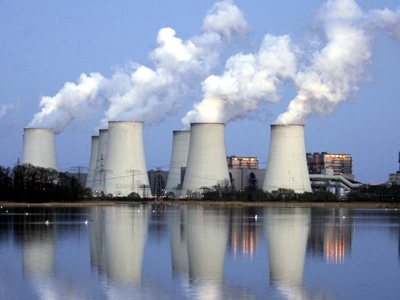If you haven’t heard about the major droughts afflicting most of the US this summer, then you may just have your head in the sand (or more likely a water-parched dusty hole). In fact, the media department of the Drought Monitor website ran out of combinations for modifying the words “intensify” and “widespread” when referring to the drought in their headlines.
Indeed, if you have been keeping tabs on the situation, “megadrought” and “a new normal?” sound highly familiar by now. With farmers nervous about a modern-day Dust Bowl taking hold, the question on everyone’s mind is, how long will it last?
This visceral threat of water scarcity puts a new report about the true cost of fossil fuels in perspective. “The Hidden Costs of Electricity: Comparing the Hidden Costs of Power Generation Fuels” evaluates, among other parameters, the water demands of fuel sources such as biomass, coal, nuclear, natural gas, solar, and wind.
In short, the nonrenewables like nuclear and coal use far more water to generate electricity than clean energy technologies like solar and wind. Take a look at how much water power plants need to function (mainly for the purpose of cooling):
Nuclear
- 700 – 1,100 gallons per MWh (closed-loop systems)
- 25,000 – 60,000 gal per MWh (open-loop)
Coal
- 500 – 600 gal per MWh (closed-loop)
- 20,000 – 50,000 gal per MWh (open-loop)
Biomass
- 2.42 billion gal per 50 MW plant
- 40,000 – 100,000 gal per MWh for irrigating crops to burn
Solar
- 225 – 520 gal per MWh (washing Photovoltaic panels)
- 800 gal per MWh (Concentrating Solar Power wet method cooling)
- 80 gal per MWh (CSP dry method cooling)
- 1240 gal per MWh (Trough plant, wet)
- 290 gal per MWh (Trough plant, dry)
Wind
- 45-85 gal per MWh
It’s important to point out that the renewables’ highest demand level is around 800 gal/MWh, which is comparable with the lowest levels of coal and nuclear’s water usage and nowhere near the highest levels. If you include more extreme ways of extracting energy, methods like hydrofracking use millions of gallons to process natural gas.
This information is yet another reason why apologists for fossil fuels need to stop saying these resources are “cheap” forms of energy.
Says Geoff Keith, senior associate of Synapse Energy Economics Inc.,
“Too often left out of the equation are a number of important ‘hidden’ costs, also called ‘indirect’ or ‘externalized’ costs, associated with each generation technology. These include costs to society such as depletion of water and other resources, air and water pollution, detrimental impacts on human health and the environment, and contributions to global climate change. While direct costs (the monetary cost to build and operate a generating plant) are important to consumers, so too are these indirect costs, whether or not they can be easily expressed in monetary terms.”
If policymakers did consider externalized costs, fossil fuels become significantly less alluring as a major energy source. Much of the rest of the world doesn’t even have access to safe drinking water – meaning that our society should make it a higher priority to preserve water for food growth and drinking purposes, not wasteful, outdated energy technologies.
Subscribe to our newsletter
Stay up to date with DeSmog news and alerts







